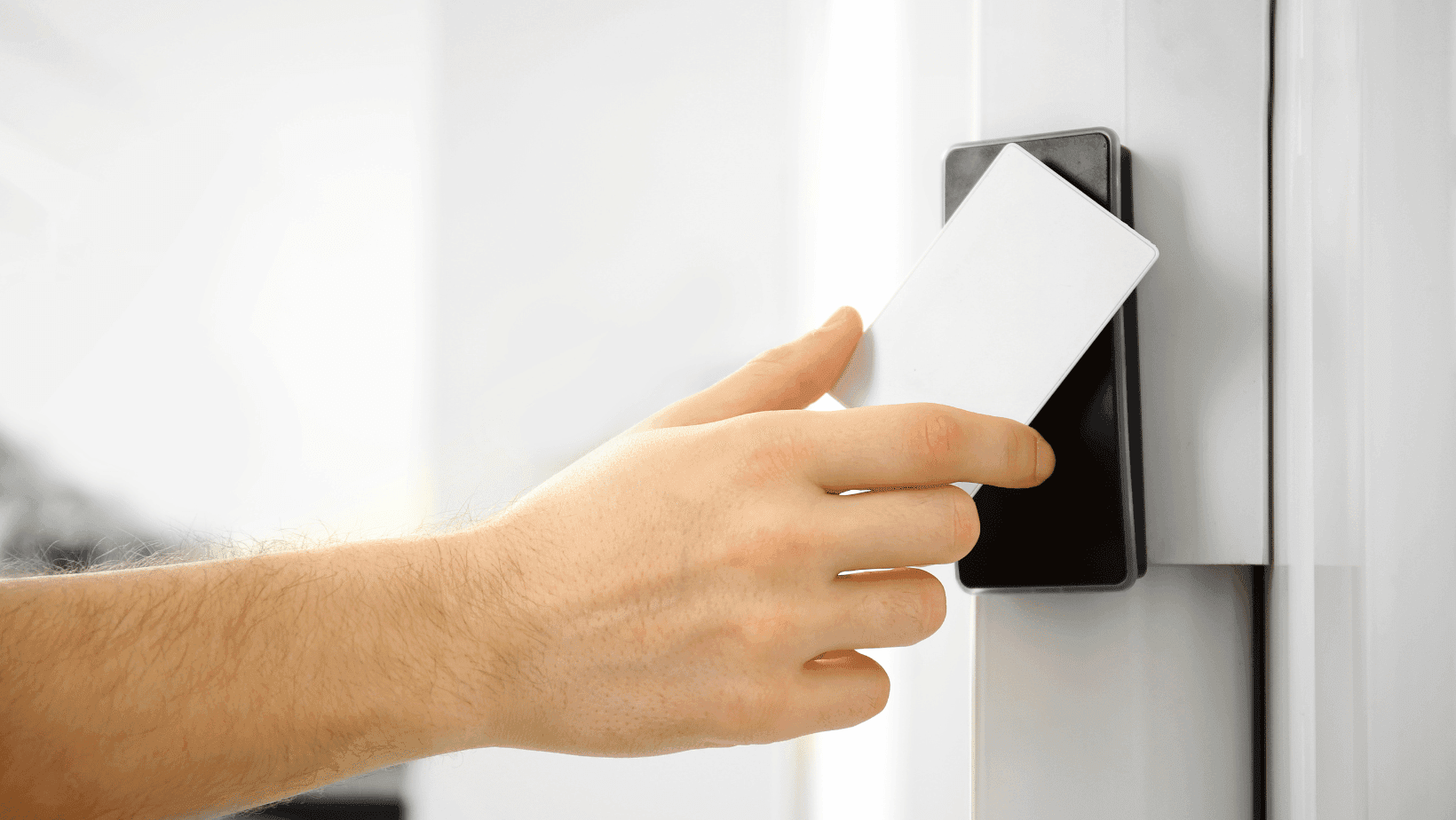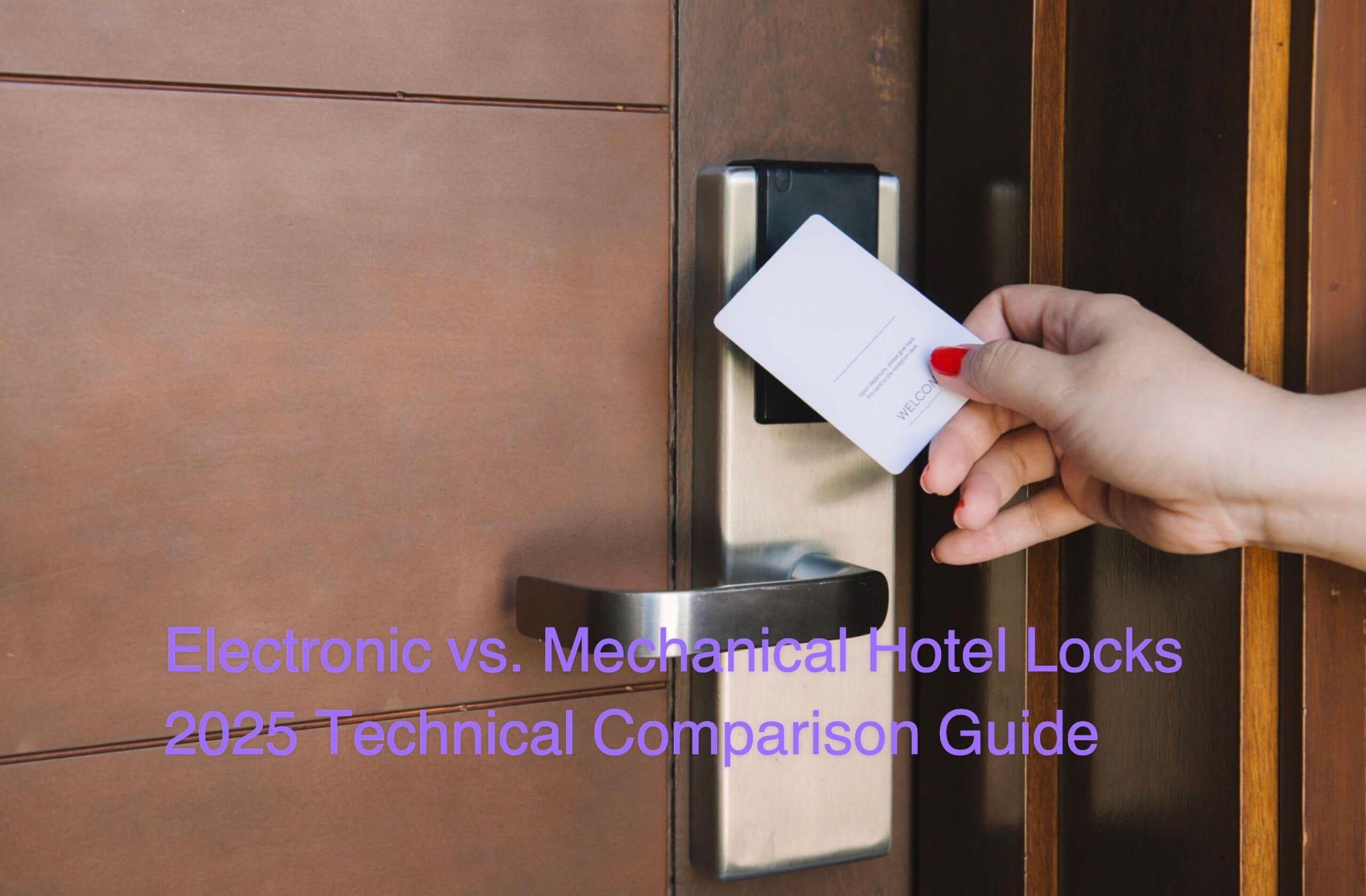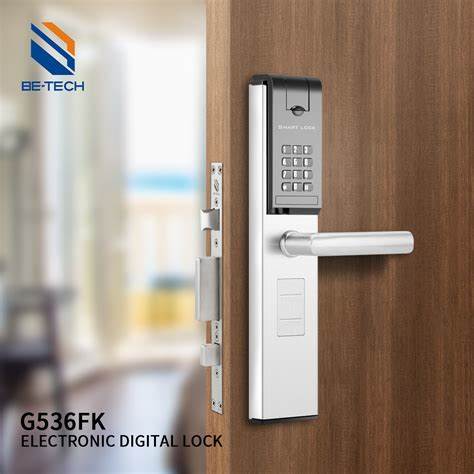In the hospitality industry, ensuring the security and convenience of guests is paramount. One of the most effective ways to achieve this is through the use of RFID (Radio Frequency Identification) hotel locks. These advanced locking systems offer numerous benefits, including enhanced security, ease of use, and integration with other hotel management systems. However, understanding the costs associated with RFID hotel locks is crucial for hotel owners and managers. This guide provides a comprehensive overview of the pricing for RFID hotel locks, including the factors that influence these costs.
Types of RFID Hotel Locks and Their Prices
RFID hotel locks play a crucial role in modern hotel security systems. They are primarily categorized into two main types: MIFARE and TEMIC, each offering distinct features and price ranges that cater to different operational needs.
MIFARE Hotel Locks
- Price Range: $30 to $100 per unit
- Key Features:
- Advanced functionalities such as door access control, electricity management, and integration with hotel elevators and dining facilities.
- Utilizes 13.56 MHz MIFARE-1 card technology compatible with various card types (ISO14443 Type-A).
- Often includes professional hotel lock management software, enhancing security and operational efficiency.
TEMIC Hotel Locks
- Price Range: $20 to $80 per unit
- Key Features:
- Designed primarily for basic operations like door access and electricity control.
- Generally more affordable than MIFARE locks but may lack advanced features.
Bluetooth and Fingerprint Apartment Door Locks
In addition to RFID locks, many hotels—especially those offering apartment-style accommodations or Airbnb properties—also utilize Bluetooth and fingerprint door locks.
Bluetooth Apartment Door Locks
- Price Range: $60 to $120 per unit
- Key Features:
- Remote management capabilities via a mobile app allow flexible access control.
- Supports multiple unlocking methods, including mobile app access and traditional keys.
Fingerprint Apartment Door Locks
- Price Range: $80 to $200 per unit
- Key Features:
- Provides enhanced security through biometric verification.
- Often includes additional features such as remote access, real-time notifications, and smart home system integration.
| Lock Type | Price Range | Key Features |
|---|---|---|
| MIFARE Hotel Locks | $30 – $100 | Advanced functionalities, integration capabilities |
| TEMIC Hotel Locks | $20 – $80 | Basic operations like door access |
| Bluetooth Apartment Locks | $60 – $120 | Remote management via app |
| Fingerprint Apartment Locks | $80 – $200 | Biometric verification, enhanced security |
These pricing ranges reflect general market trends and may vary based on specific brands, models, and additional features offered by different manufacturers. Understanding these options can help hotels make informed decisions about their security systems.
Additional Costs of RFID Hotel Locks
When implementing RFID hotel locks, it’s essential to consider various additional costs that impact your overall budget beyond just the initial purchase price. Understanding these expenses helps hotels plan effectively for their locking systems.
Installation Costs
The installation process for RFID hotel locks can be complex and typically requires professional services. Installation costs generally range from $150 to $250 per lock, covering:
- Labor for precise measurements and drilling
- Proper fitting of locks
- Ensuring optimal functionality
Hotels should budget for these installation expenses to ensure a seamless implementation.
Maintenance and Battery Costs
Regular maintenance is critical for the longevity of RFID hotel locks, particularly regarding battery replacements. Most RFID locks utilize AA batteries, which need changing every 6 to 12 months. Replacement costs average around $1 to $2 per battery. Hotels should anticipate these recurring expenses as part of their operational budget.
Optional Accessories and Upgrades
To maximize the functionality of RFID lock systems, hotels may consider investing in additional accessories and upgrades. Common items include:
| Accessory | Purpose | Cost per Unit |
|---|---|---|
| Card Issuers | For programming key cards | $120 |
| Data Collectors | For managing access records | $350 |
| Gateways | For enabling remote access and management | $32 |
Investing in these accessories can enhance security and management capabilities within hotels.
By understanding these additional expenses associated with RFID hotel locks, hotels can prepare their budgets effectively, ensuring a successful transition to this advanced locking system while maintaining operational efficiency.
Key Factors Influencing RFID Lock Pricing
Material Quality and Durability
The construction material of RFID locks significantly impacts their pricing structure. Common materials include:
Stainless Steel: Known for its high durability and resistance to tampering, stainless steel locks are ideal for high-security environments but come at a premium price.
Zinc Alloy and Plastic: These materials are generally more affordable but may lack the durability required for long-term use.
Investing in higher-quality materials can lead to lower maintenance costs over time, making them a worthwhile consideration despite their initial expense.
Technological Features Available
Advanced technological features can elevate the cost of RFID locks. Key features include:
Biometric Access Systems: Locks that utilize fingerprint or facial recognition technology require sophisticated hardware, resulting in higher prices.
Remote Management Capabilities: Locks that integrate with mobile apps or hotel management systems (PMS) typically carry a premium due to their advanced functionalities.
Connectivity Options (Bluetooth/Wi-Fi): These features enhance user convenience but also contribute to increased manufacturing costs, leading to higher retail prices.
Brand Reputation and Supplier Reliability
The reputation of the brand and the reliability of suppliers play crucial roles in determining lock prices. Established brands like ASSA ABLOY, Onity, and Salto command higher prices due to their proven quality and customer support services.
Installation and Ongoing Maintenance Costs
Installation costs for RFID locks can significantly impact overall expenditures. Professional installation typically ranges from $150 to $250 per lock. Additionally, ongoing maintenance—such as battery replacements every 6 to 12 months at a cost of $1 to $2 each—should be factored into the total budget.
Market Demand Dynamics
Market conditions also influence pricing strategies. During periods of high demand for advanced security solutions, prices may rise due to limited supply. Conversely, purchasing in bulk often results in discounts per unit due to economies of scale.
Customization Options Available
Hotels may choose customized lock designs or features tailored specifically to their needs. While customization can increase costs compared to standard models, it may offer enhanced functionality or aesthetic appeal that aligns with a hotel’s branding strategy.
In evaluating RFID hotel locks, owners should carefully consider material quality, technological features, brand reputation, installation costs, market conditions, and customization options. This comprehensive understanding will enable them to balance budget constraints with essential security requirements effectively.
Cost-Saving Tips for Implementing RFID Locks in Hotels
Implementing RFID (Radio Frequency Identification) locks can significantly enhance hotel security while improving guest convenience. However, associated costs may concern hotel managers. Here are effective strategies for saving money during the upgrade or installation of RFID locking systems:
1. Bulk Purchases
Purchasing RFID locks in bulk often leads to substantial discounts from suppliers who offer lower prices per unit for larger orders. This strategy is particularly beneficial for hotels undergoing renovations or new constructions, allowing them to maximize savings while ensuring they have an adequate supply of locks.
2. Upgrading Existing Locks
Instead of replacing all existing locks with new RFID systems, hotels can retrofit current locks to incorporate RFID technology. This approach minimizes costs by utilizing existing hardware and reducing installation expenses while still enhancing security features significantly.
3. Choosing the Right Supplier
Selecting a reliable supplier is crucial for minimizing long-term costs associated with RFID systems. A good supplier not only provides competitive pricing but also offers comprehensive support, including installation guides and technical assistance. This support can significantly reduce reliance on professional installation services, further lowering overall expenses.
By leveraging these strategies—bulk purchasing, upgrading existing locks, and choosing the right supplier—hotels can effectively manage their budgets while enhancing security through RFID technology.
Conclusion
Investing in RFID hotel locks is a crucial step towards enhancing the security and convenience of hotel operations. While the initial costs can vary based on the type of lock, installation, and additional accessories, the long-term benefits of improved security and operational efficiency make it a worthwhile investment. By understanding the different pricing components and factors influencing these costs, hotel owners and managers can make informed decisions that align with their budget and security needs.
For more information on RFID hotel locks and to explore the best options for your hotel, visit Be-tech Locks, a leading supplier of customized hotel lock solutions.









